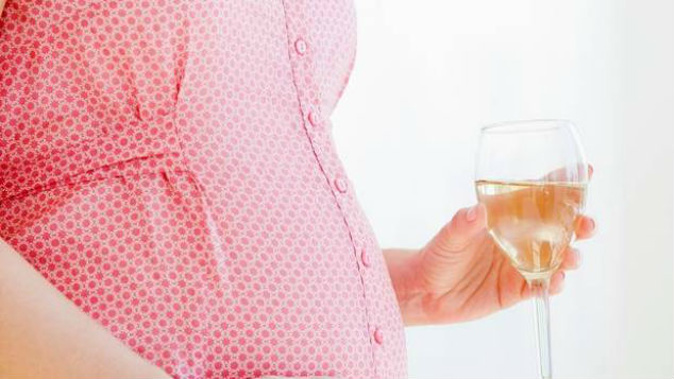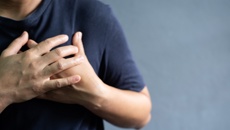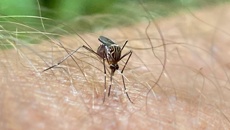
Alarming figures showing almost quarter of pregnant Kiwi women continue to drink alcohol during their first three months of pregnancy have prompted calls for the Government to take action.
A new study, published in today's New Zealand Medical Journal, found 23 per cent of women who took part in the Growing Up in New Zealand study continued to drink in their first trimester - when the risk of damage to nerve tissue was the highest - despite knowing they were pregnant. Thirteen per cent continued drinking after the first three months.
The "staggering" figures prompted experts to once again call for the Government to take action to reduce the harm caused by alcohol to all Kiwis.
In an opinion piece, also in today's Medical Journal, University of Otago professors Doug Sellman and Jennie Connor compared the harm caused during pregnancy to the Zika virus and questioned why the response was not the same.
Up to 3000 New Zealand children are born ever year with Fetal Alcohol Spectrum Disorder as a result of their mother drinking alcohol during pregnancy.
The Ministry of Health said there was no safe level of alcohol consumption while pregnant.
Fetal Alcohol Spectrum Disorder Care Action Network chairwoman Claire Gyde said the results of the study were "staggeringly high".
"To knowingly have a drink and know that you're pregnant is just Russian roulette really," she said. "It causes permanent brain damage."
Symptoms of fetal alcohol spectrum disorder included intellectual disabilities, being impulsive and easily distracted, poor memory, socially inappropriate behaviour, language difficulties and poor planning and organisational capabilities.
Gyde said those issues often led to trouble at school and with the law, addiction issues and employment issues.
Alcohol Healthwatch fetal alcohol spectrum disorder project coordinator Christine Rogan said while the data used in the study was eight years old, other figures suggested the problem was getting worse.
More recent figures showed more women were drinking and the number binge drinking was also increasing. "We know that pre-pregnancy drinking is quite predictive of what happens after conception," Rogan said.
Google, friends, family and colleagues were often responsible for telling women a small amount of alcohol would do no harm but New Zealand's drinking culture, social pressure to drink and the amount of advertising were the biggest issues, Rogan said.
She said the Government needed to be taking steps to increase awareness of the issue as well as regulating the marketing of alcohol and increasing the price.
One of the study authors, Auckland University Centre for Addiction Research senior lecturer Dr David Newcombe, agreed Government involvement was needed.
"We have very cheap alcohol. It's very accessible. Something of those issues need to be addresses," he said.
In their editorial, Sellman and Connor described the disorder as a "preventable tragedy" and said drinking also increased the risk of still birth, cot death and breast cancer.
They called on the Government to change rules around the advertising, price and availability of alcohol.
The most important guide for the Government was the Law Commission's 2010 report on curbing the harm from alcohol, they said.
At the time Labor criticised the Government for tinkering rather than making substantial changes but current Health Minister David Clark said, while the data was concerning, there were no proposals for legislative change in the area.
"Many of the Law Commission's recommendations have already been implemented and alcohol related harm is an important factor in many of the Government's priorities," he said.
He said the Don't Know? Don't Drink campaign had reached many and had been supported by the development of resources for health professionals to use.
It's not worth the risk
/arc-anglerfish-syd-prod-nzme.s3.amazonaws.com/public/SLHTARBWYFB5ZHBBDN35QJDHSY.jpg)
Melissa Mendoza has stopped drinking alcohol to make sure her baby is as healthy as possible. Photo / Jason Oxenham
The decision was simple for Melissa Mendoza, 29, who is pregnant with her first child.
"I feel like [not drinking alcohol] is a safer option for my baby and I feel like it's a risk I don't want to take."
For her it was always a given that she would not drink alcohol while pregnant.
"I'm aware of the risks and the consequences of it," she said. "I don't usually drink much any way so it's not a huge change for me."
Mendoza, who is due in November, said most of her friends has similar views and were all supportive of the decision.
Jackie Prichard agreed it was not worth the risk. But for her it was a lesson learnt the hard way.
When she fell pregnant with her son 17 years ago no one told her of the dangers of drinking while pregnant.
"I cut down. I never got drunk while I was pregnant. I didn't know that alcohol was such a problem. It was only on the odd occasion but I did drink all through my pregnancy on and off."
When her son Alex was two they started to realise there might be something wrong but it wasn't until he was 8 that he was diagnosed with fetal alcohol spectrum disorder.
"It was like a kick in the stomach. I was thinking, 'well, I did this'," she said.
The disorder meant Alex had difficulty learning and missed social cues so Prichard had home-schooled him since Year 10.
Prichard said she now spoke out about her experience to warn people it was not something which only affected alcoholics or binge drinking teenagers.
Take your Radio, Podcasts and Music with you









